Filter by
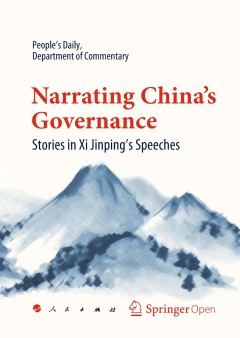
Narrating China's governance : stories in Xi Jinping's speeches
This open access book captures and elaborates on the skill of storytelling as one of the distinct leadership features of Xi Jinping, the General Secretary of the Communist Party of China and the President of the People’s Republic of China. It gathers the stories included in Xi’s speeches on various occasions, where they conveyed the essence of China’s history and culture, its reform and d…
- Edition
- -
- ISBN/ISSN
- 9789813291782
- Collation
- xxv, 266p. : ill
- Series Title
- -
- Call Number
- 951 NAR n
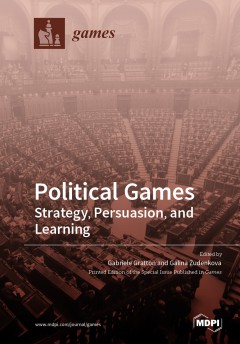
Political games : strategy, persuasion, and learning
Political actors navigate a world of incomplete and noisy information. Voters make decisions about turnout and voting amidst campaign promises, credit claiming, and fake news. Policymakers experiment with reforms amidst uncertain predictions from experts and biased interest groups. Parties form coalitions and sign agreements amidst cheap talk and strategic communication. Beyond democracies, aut…
- Edition
- -
- ISBN/ISSN
- 9783039284474
- Collation
- VII, 70 p.
- Series Title
- -
- Call Number
- 320.015193 GRA p
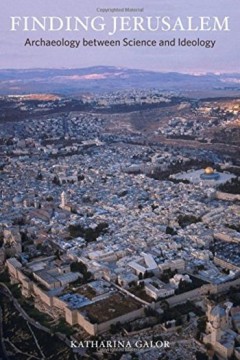
Finding Jerusalem : archaeology between science and ideology
Archaeological discoveries in Jerusalem capture worldwide attention in various media outlets. The continuing quest to discover the city’s physical remains is not simply an attempt to define Israel’s past or determine its historical legacy. In the context of the ongoing Israeli-Palestinian conflict, it is also an attempt to legitimate—or undercut—national claims to sovereignty. Bridging …
- Edition
- -
- ISBN/ISSN
- 9780520968073
- Collation
- xxi, 248p. : ill.
- Series Title
- -
- Call Number
- 933.442 GAL f
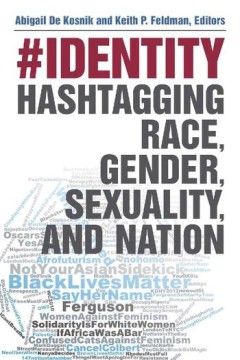
#Identity : hashtagging race, gender, sexuality, and nation
"Since its launch in 2006, Twitter has served as a major platform for political performance, social justice activism, and large-scale public debates over race, ethnicity, gender, sexuality, and nationality. It has empowered minoritarian groups to organize protests, articulate often-underrepresented perspectives, and form community. It has also spread hashtags that have been used to bully and …
- Edition
- -
- ISBN/ISSN
- 9780472074150
- Collation
- xi, 365p. : ill.
- Series Title
- -
- Call Number
- 302.30285 HAS h
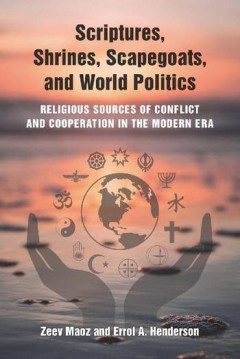
Scriptures, shrines, scapegoats, and world politics: religious sources of con…
The effect of religious factors on politics has been a key issue since the end of the Cold War and the subsequent rise of religious terrorism. However, the systematic investigations of these topics have focused primarily on the effects of religion on domestic and international conflict. Scriptures, Shrines, Scapegoats, and World Politics offers a comprehensive evaluation of the role of religion…
- Edition
- -
- ISBN/ISSN
- 9780472131747
- Collation
- viii, 444p. : ill.
- Series Title
- -
- Call Number
- 291.17 MAO s
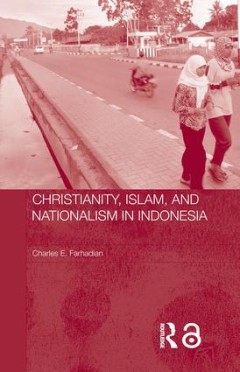
Christianity, Islam, and nationalism in Indonesia
Although over eighty percent of the country is Muslim, Indonesia is marked by an extraordinary diversity in language, ancestry, culture, religion and ways of life. This book focuses on the Christian Dani of West Papua, providing a social and ethnographic history of the most important indigenous population in the troubled province. It presents a fascinating overview of the Dani’s conversion to…
- Edition
- -
- ISBN/ISSN
- 9780203007556
- Collation
- xxi, 233p. : ill.
- Series Title
- -
- Call Number
- 305.899120951 FAR c
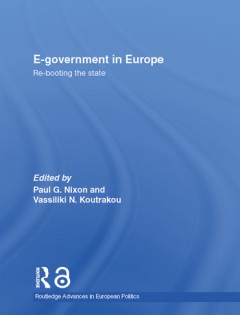
E-government in Europe : re-booting the state
This book traces the development of e-government and its applications across Europe, exploring the effects of information and communication technology (ICTs) upon political action and processes. Explores a range of concepts and topics underpinning e-government in Europe: the degree to which e-government translates into genuine reform of government and public administration the dual role of the …
- Edition
- -
- ISBN/ISSN
- 9780203962381
- Collation
- xxviii, 220p. : ill.
- Series Title
- -
- Call Number
- 352.3802854678 ELE e
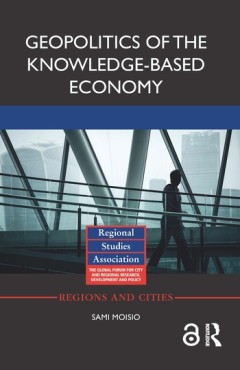
Geopolitics of the knowledge-based society
We live in the era of the knowledge-based economy, and this has major implications for the ways in which states, cities and even supranational political units are spatially planned, governed and developed. In this book, Sami Moisio delves deeply into the links between the knowledge-based economy and geopolitics, examining a wide range of themes, including city geopolitics and the university as …
- Edition
- -
- ISBN/ISSN
- 9781138821996
- Collation
- xi, 182p. : ill.
- Series Title
- -
- Call Number
- 303.4833 MOI g
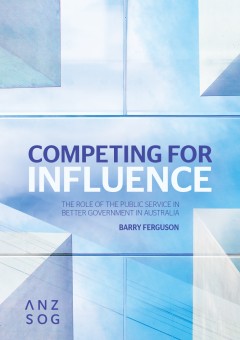
Competing for influence : the role of the public service in better government…
Amidst growing dissatisfaction with the state of government performance and an erosion of trust in our political class, Competing for Influence asks: what sort of public service do we want in Australia? Drawing on his experience in both the public and private sectors – and citing academic research across the fields of public sector management, industrial organisation, and corporate strategy �…
- Edition
- -
- ISBN/ISSN
- 9781760462772
- Collation
- xiii, 433p. : ill.
- Series Title
- -
- Call Number
- 351.94 FER c
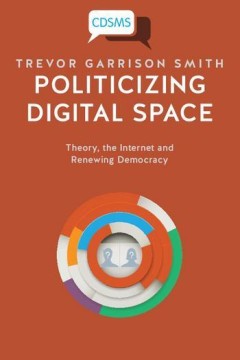
Politicizing digital space : theory, the Internet, and renewing democracy
"The objective of this book is to outline how a radically democratic politics can be reinvigorated in theory and practice through the use of the internet. The author argues that politics in its proper sense can be distinguished from anti-politics by analyzing the configuration of public space, subjectivity, participation, and conflict. Each of these terrains can be configured in a more or less …
- Edition
- -
- ISBN/ISSN
- 9781911534433
- Collation
- vi, 147p. : ill
- Series Title
- -
- Call Number
- 324.7 SMI p
 Computer Science, Information & General Works
Computer Science, Information & General Works  Philosophy & Psychology
Philosophy & Psychology  Religion
Religion  Social Sciences
Social Sciences  Language
Language  Pure Science
Pure Science  Applied Sciences
Applied Sciences  Art & Recreation
Art & Recreation  Literature
Literature  History & Geography
History & Geography